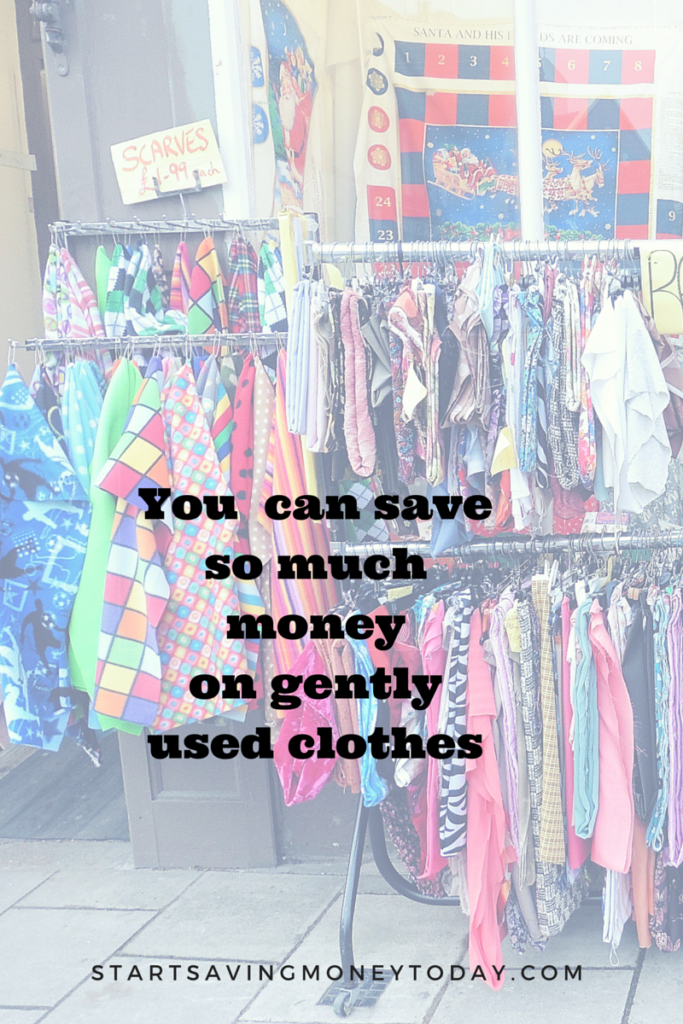Save Money On Used Clothes
You can save money on used clothes. Have you ever considered how much of your money you put into your job? You have to pay for transportation to get there. Most of us eat at least once while we’re there. And what about the clothes we wear on the job? I know some jobs provide uniforms or have a way you can get a tax break on clothing expenses—but most of us provide our own and foot the bill. I choose to use thrift stores for second clothing, yes I wear used clothes.
Save Money On Used Clothes
Cutting the cost of work clothing is the topic for this post: Buying used is a fantastic way to do that.
I work in a factory. We have a dress code. It’s not very onerous. Our clothing can’t have holes, shirts must have sleeves, and we wear steel-toed boots. It’s a jeans and tee-shirt environment, but some of the jeans and tee-shirts I see on the production floor are right next to designer. I have co-workers who shop the mall, boutiques, and high-end outlets. They have some money invested in the clothes they wear to work. And you know what? There are plenty of things to snag, rip, or stain our clothes. Every day someone ruins a nice tee-shirt or pair of jeans.
Occasionally, I like to “shop” those same venues. Mostly, I go to see what the prices are like. At the mall it’s nothing to see jeans go for $50, $100, $140, more! Then, I see the same jeans at work. At the outlets, it’s nothing to find tee-shirts priced between $18 and $30—and people are willing to wear that kind of money around dirty, smelly, oily, heavy machinery. I’m not!
Of course, plenty of people shop at stores like Walmart. There, prices can be considerably less expensive, but that still leaves them wearing new clothes to work. Why would I want to wear new clothes in an environment so hazardous to them? I don’t! To reduce the financial (and emotional—“Hey, that was my favorite tee-shirt”) cost of working, I head to the thrift stores to look for the clothing I need for work. Frankly, this means I save money on used clothes
Now, when I say used, I don’t mean worn out. I don’t buy junk. I look for clothes that meet or exceed the dress code. I check to see if it will last a
while. I look for threadbare areas, or the beginning of a rip or frayed pockets etc. (I’m looking for a reason to not buy the item.)
If it passes the inspection I look at the price tag. A pair of jeans at Good Will are priced about $6.00. That’s at least $44.00 savings over those I saw at the mall. I can buy tee shirts for $4.00 a piece (sometimes less) and save $14.00 at a minimum. That equals a total savings of $60.00 for one set of clothes for work.
Just so you know, I’ve been asked if it embarrasses me at all to wear clothes from a thrift store. Here’s my philosophy on this in brief: Whenever possible I buy used. The way I see it, after a piece of clothing has been worn once, it becomes used goods. The second time I wear it, it won’t matter where I bought it, or how much I paid for it—so, why be extravagant on clothes for work?
As an afterthought, here’s a note: I said our dress code required steel-toed boots. These are hard to find used, but if I found a pair that fit correctly, I’d probably buy them. As it is, twice a year, the company I work for has a “shoe fair” with the price of our boots deeply discounted. I do everything I can to take advantage of that sale.
You can save money on used clothes. This will give you more discretionary income.


